The border commune of Ban Lau in Muong Khuong district has long been known as the "barn" of bananas and pineapples in Lao Cai province. From pineapples and bananas, more and more Mong millionaires have appeared on the land devastated by the border war 46 years ago. The extraordinary general meeting of shareholders of Vietcombank elected Mr. Le Quang Vinh - Deputy General Director in charge of the Executive Board as a member of the Board of Directors for the 2023 - 2028 term, and dismissed Mr. Nguyen My Hao, who retired from the regime from November 1, 2024. With the above decisions, the Board of Directors of Vietcombank still has 9 members. Currently, many Co Ho ethnic women in Lam Dong province have known how to take advantage of the locality, boldly investing in the production of organic coffee according to a closed process, promoting the Central Highlands coffee brand to domestic and foreign customers, bringing high income to their families. General news of the Ethnic and Development Newspaper. The morning news on March 8th has the following notable information: Dak Lak coffee knowledge is recognized as a National Intangible Cultural Heritage. Prosperous craft villages in Ca Mau. The season of "catching" students in Po To. Along with other current news in ethnic minority and mountainous areas. The border commune of Ban Lau in Muong Khuong district has long been known as the "barn" of bananas and pineapples in Lao Cai province. From pineapples and bananas, more and more Mong millionaires have appeared on the land devastated by the border war 46 years ago. After going through many hardships, difficulties and hardships, for the past 10 years, Lung Thi Thuy and her husband, Phu La ethnic group in Coc Sam 2 village, Phong Nien commune, Bao Thang district, Lao Cai province, have still stuck to the profession of growing custard apples. Not letting people down, each season, custard apples bring sweet fruits to Thuy's family. On March 7, 2025, Binh Duong province opened the Biwase Tour Of Vietnam. This is the first women's cycling tournament in Vietnam within the framework of the 15th annual Binh Duong International Women's Cycling Tournament, competing for the Biwase Cup, to be included in the international tournament system. "Every inch of land is gold", yet two poor Van Kieu households, Mr. Ho Van Lat and Mr. Ho Van Chun in Huong Hoa district (Quang Tri) have donated nearly 1,000 square meters of land to expand the school. The noble gesture of the two households is contributing to spreading a decent lifestyle to the local community... General news of the Ethnic and Development Newspaper. This afternoon's news on March 7, has the following notable information: 100-year journey of the Salt Industry - Human Life. Going to Si Ma Cai to see white pear flowers. The beauty of the ancient Thai village in the middle of the great forest of Nghe An. Along with other current news in ethnic minority and mountainous areas. Vietcombank's extraordinary general meeting of shareholders elected Mr. Le Quang Vinh - Deputy General Director in charge of the Executive Board as a member of the Board of Directors for the 2023 - 2028 term, and dismissed Mr. Nguyen My Hao, who retired from the regime from November 1, 2024. With the above decisions, Vietcombank's Board of Directors still has 9 members. Within the framework of the Vietnam Salt Festival - Bac Lieu in 2025, on the afternoon of March 7, the Ministry of Agriculture and Environment (MARD) coordinated with the People's Committee of Bac Lieu province to organize a conference to review the implementation of Decree No. 40/2017/ND-CP of the Government on the management of salt production and trading. On the afternoon of March 7, in Hanoi, the Customs Department held a conference to announce the Decision regulating the functions, tasks, powers, and organizational structure of the Customs Department and its internal organizations; Announcing the Decisions on the personnel work of the Customs Department. Deputy Minister of Finance Nguyen Duc Chi attended and gave a speech at the Conference. On the afternoon of March 7, in Hanoi, General Secretary To Lam and the Central Working Group worked with the Central Policy and Strategy Committee on private economic development. General news of the Ethnic and Development Newspaper. This afternoon's news on March 7, has the following notable information: 100-year journey of the Salt Industry - Human Life. Going to Si Ma Cai to see white pear flowers. The beauty of the ancient Thai village in the middle of the great forest of Nghe An. Along with other current news in the ethnic minority and mountainous areas.
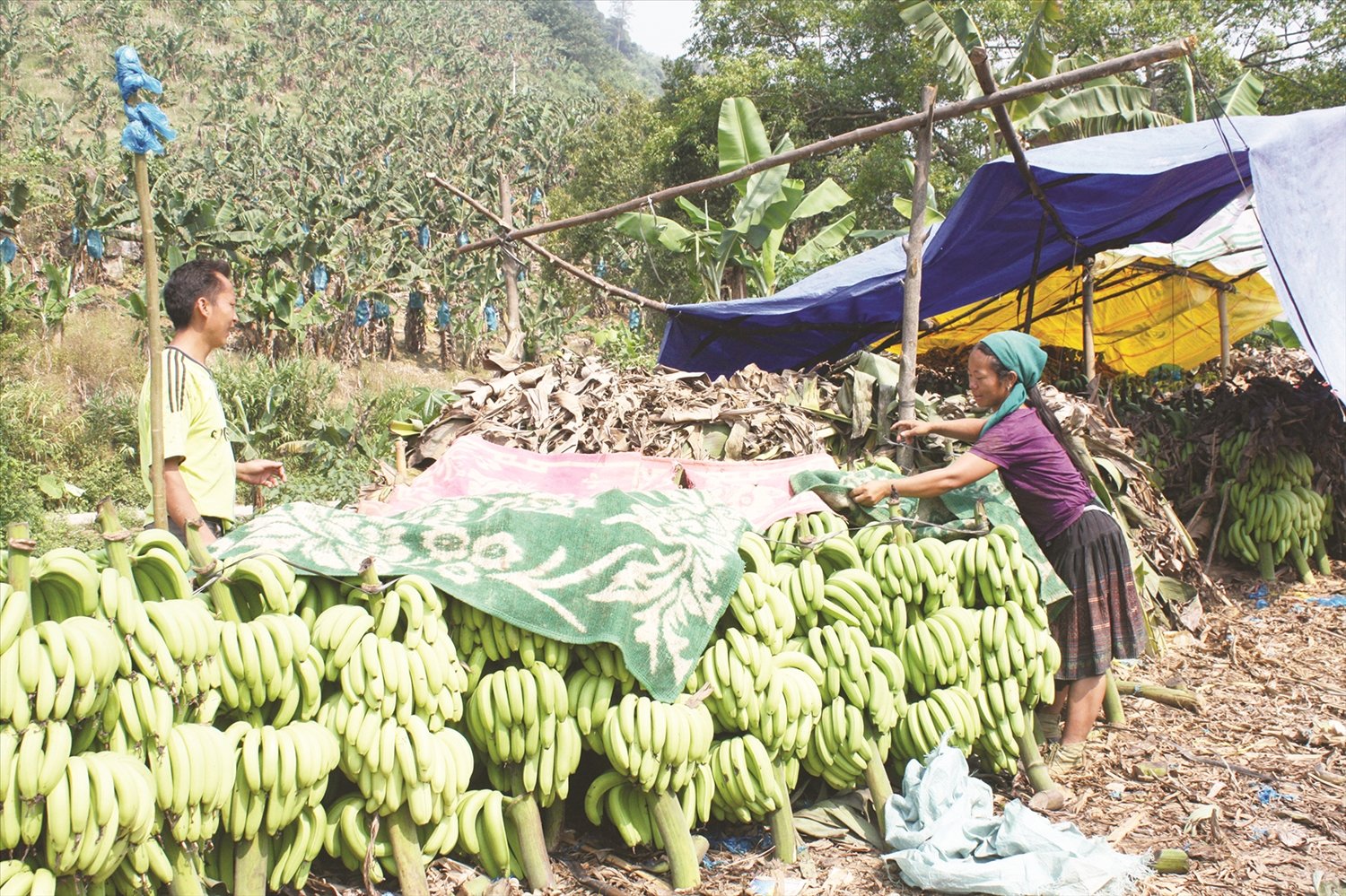
In the early 90s, Thao Din was one of 34 Mong households in the highland commune of Din Chin, Muong Khuong district, who moved to live in the border village of Coc Phuong, Ban Lau commune. At that time, the name Coc Phuong was unfamiliar even to people in the district, because the village was far from the center, had difficult transportation, and was close to the border, isolated from the outside world. When he first settled in Coc Phuong, he and many other people had to go to the other side of the border to work for hire in exchange for rice to support their families; the hired job there was picking pineapples for hire.
“I go to work during the day and at night I keep thinking, people are just across the stream from me, their hills are no different from mine, but they have become rich from growing pineapples to growing bananas, while my villagers have been poor for years and have to work for hire… I work and observe, learn pineapple growing techniques, especially how to mix biological chemicals to stimulate pineapples to grow big and beautiful. When I was sure I could grow pineapples like them, I saved my wages to buy pineapple seeds,” Mr. Din confided.
In the first pineapple crop (late 1994), Mr. Din bought more than 10,000 pineapple plants and mobilized his wife, children, and brothers to carry them up the hill to plant. When the pineapples took root, he hired people in the village to weed and fertilize according to the process he had learned. More than a year later, when the pineapple hill bore ripe fruit, the whole family was overjoyed. But when the harvest season came, another obstacle arose because at that time, from the commune center to Coc Phuong, there was only a small path, and trucks could not get to the hill to buy. So he had to hire people to carry each heavy basket of pineapples several kilometers before selling them. After deducting the investment cost, the remaining wages did not yield much profit.
The second crop, he saved all the money in the house, then borrowed more money to plant 10,000 more trees, but it seemed like God wanted to test people. When he had just harvested 10 tons of pineapples, it rained continuously, causing most of the ripe pineapples to rot. That crop, Thao Din lost more than 10 million VND.
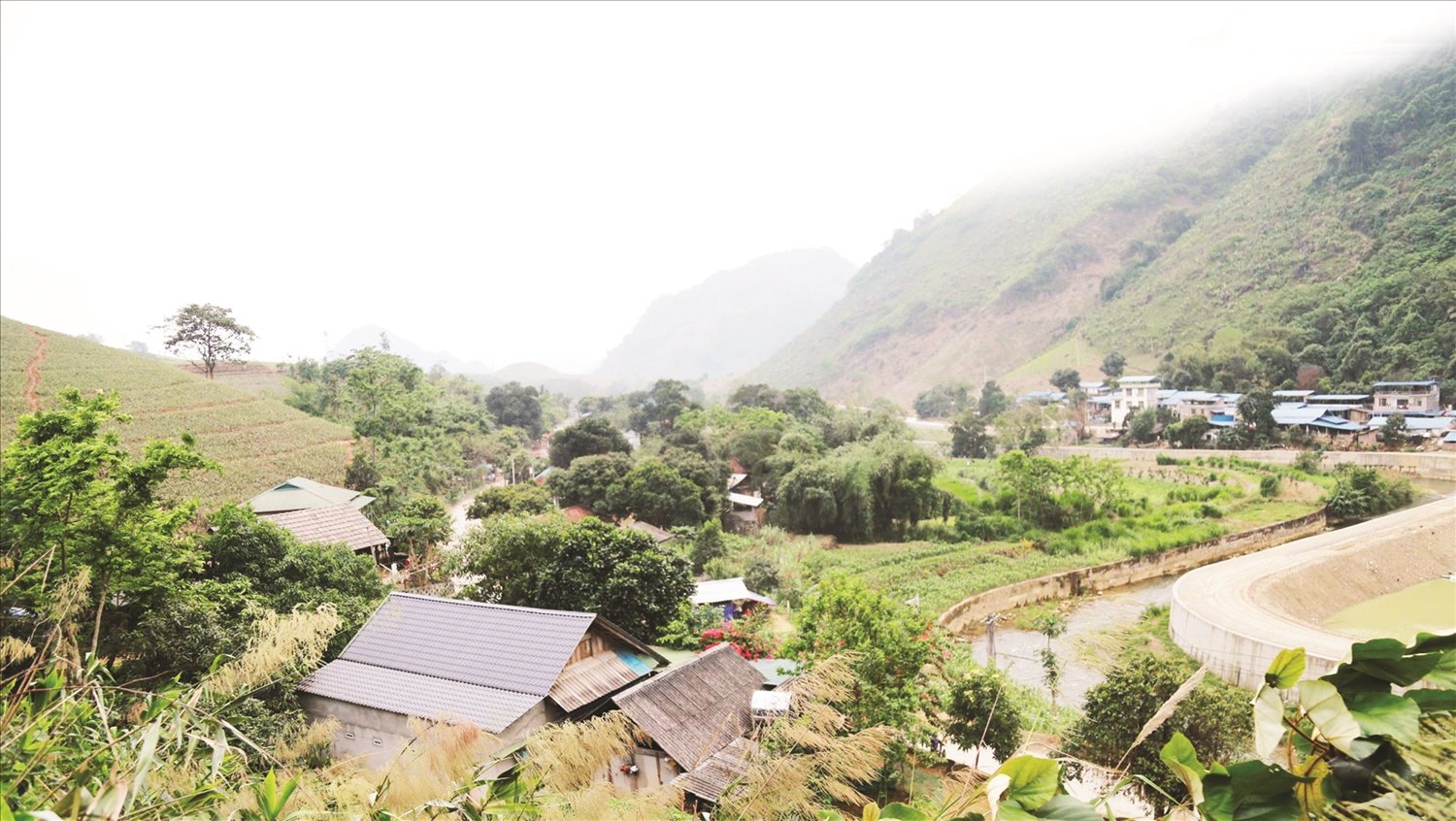
When faced with difficulties, Thao Din tried 5 or 10 times harder. The following year, he discussed with his wife to borrow more money from the bank to buy 30,000 pineapple seedlings. This season, Thao Din carefully calculated the planting time so that the pineapples would ripen at the right time without encountering unfavorable weather. The pineapple crop was good and the price was good, thanks to that, he was able to pay off all his debts and have money to invest in expanding the area. After pineapple, Thao Din also learned the technique of growing bananas in tissue culture and successfully applied it to the strip of land along Coc Phuong and Na Loc streams. Now, Mr. Din's family has one of the largest banana and pineapple growing areas in the commune, earning several hundred million VND each year.
Following Thao Din, the Mong people in Coc Phuong replaced corn with pineapple, bringing in much higher income, pushing back poverty, and making life increasingly better. Successful with pineapple, the Mong people here also grow bananas using tissue culture for export. Bananas are grown in low places along streams, pineapples are grown in high mountains, the green color of prosperity and abundance covers the wasteland.
Starting from Coc Phuong, now all villages in Ban Lau grow pineapples and bananas, becoming a specialized commodity production area with more than 1,500 hectares. Each year, it brings tens of billions of dong to the people.
Starting from Coc Phuong, now all villages in Ban Lau grow pineapples and bananas, becoming a specialized commodity production area with more than 1,500 hectares. Each year, bringing tens of billions of dong to the people, Coc Phuong now has no poor households, 70% are well-off and rich households. The prosperous border area helps people feel secure in protecting the border markers with the Border Guard.
Coming to Ban Lau today, it is not difficult to see houses that are built spaciously and have modern designs no less than those in the lowlands. Provincial Road 154 - the road connecting National Highway 4D Lao Cai - Muong Khuong to Pac Bo, Na Loc, Coc Phuong villages... has been invested by the State with an investment capital of up to tens of billions of VND, and has just been inaugurated and put into use a few months before Tet At Ty, helping people's travel and trade of goods become more and more convenient.
It is known that in 2024, the whole commune has 848 hectares of pineapples for harvest, with a yield of 26 tons/ha, a total output of more than 22,000 tons of fruit, sold to Muong Khuong Export Vegetable and Fruit Processing Factory and the provinces of Bac Giang , Ninh Binh, Thanh Hoa, Quang Ninh... bringing in more than 132 billion VND to the people. Thanks to that, most of the houses have been solidly built, many are 2-3 storey houses, with full modern living facilities, the children are fully educated, and there are no social evils. People are assured to settle down, develop production, and together with the Border Guard to firmly protect the sovereignty and security of the national border...
Source: https://baodantoc.vn/bien-cuong-xanh-mau-no-am-1741233745919.htm



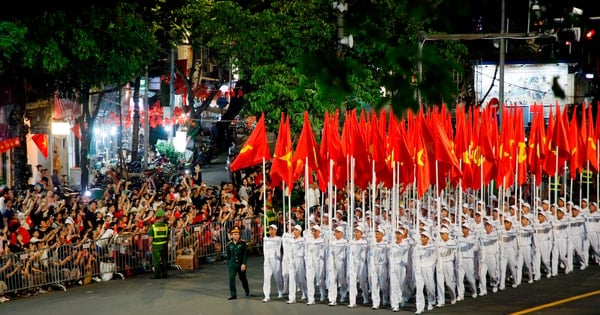
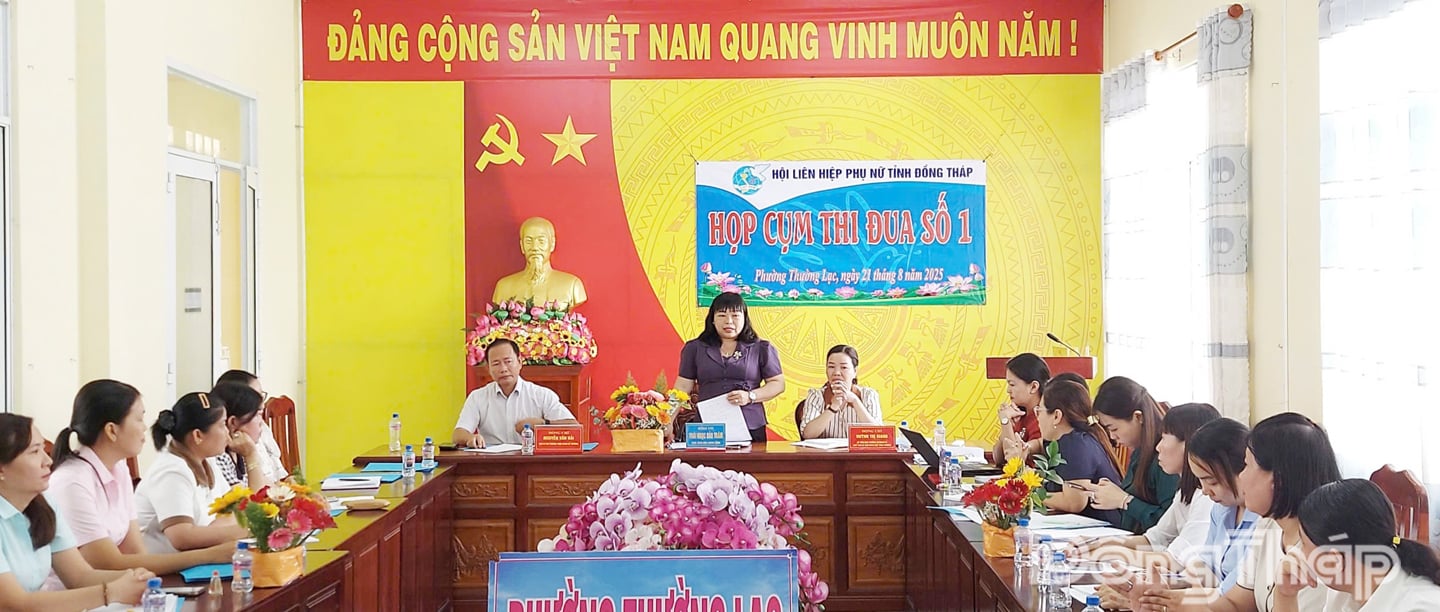


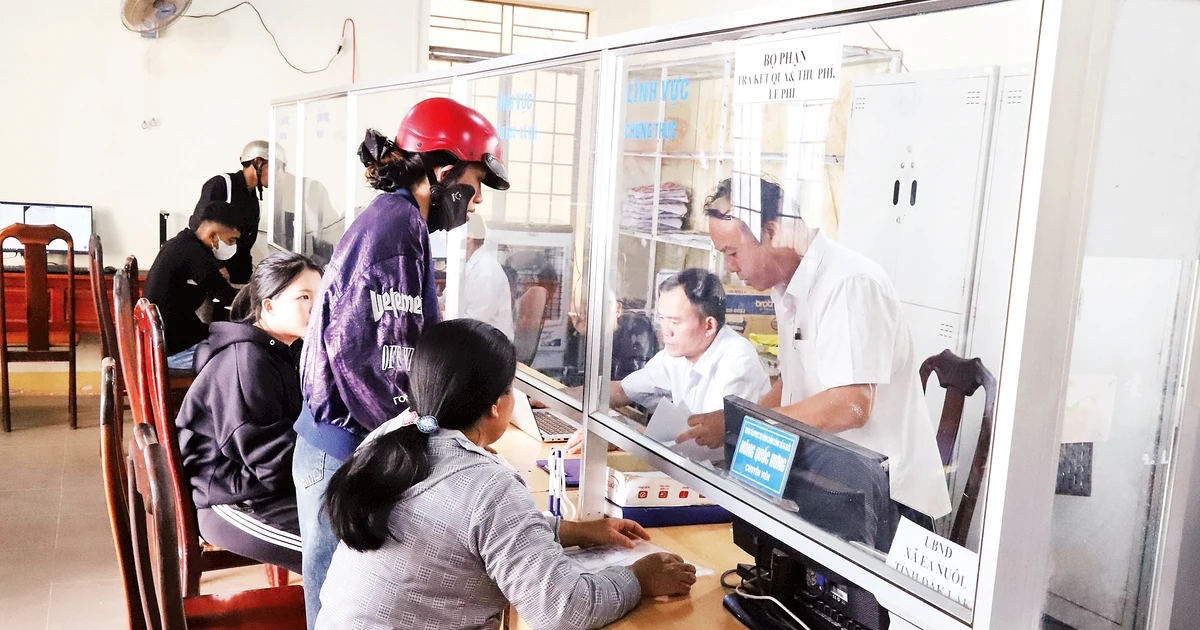
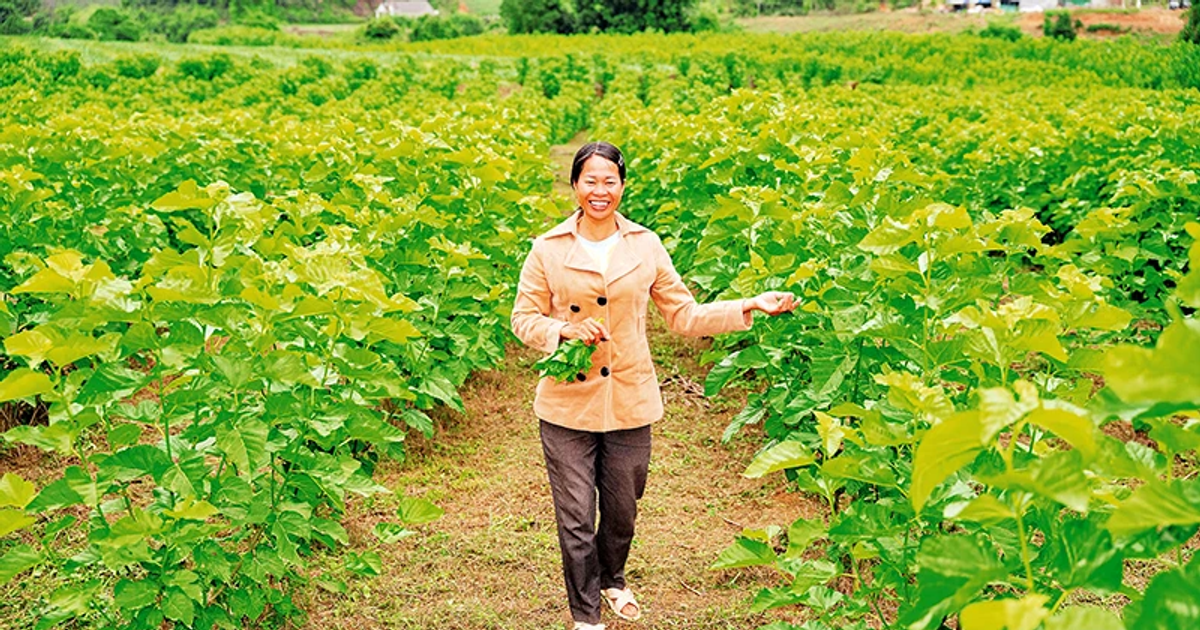
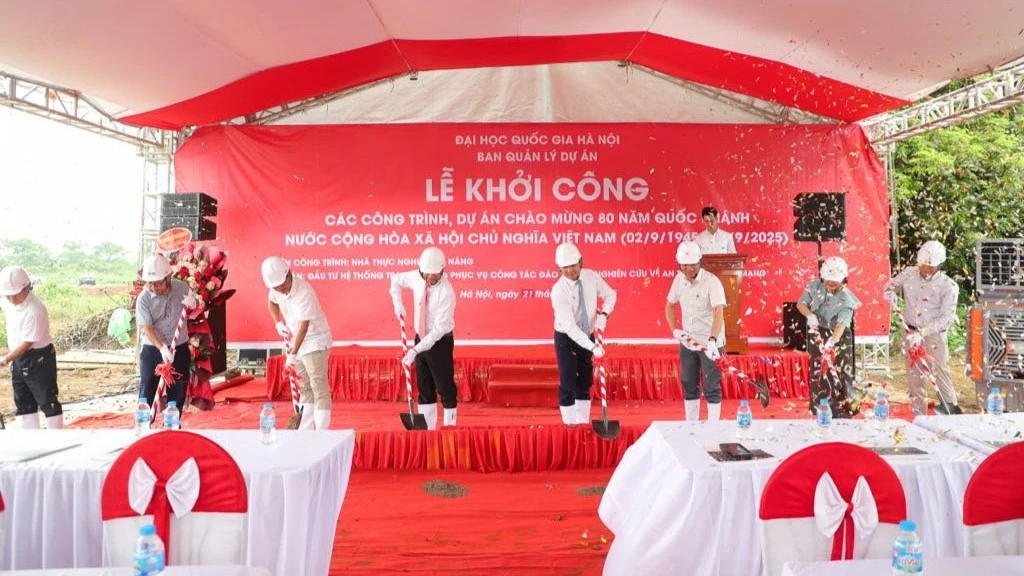
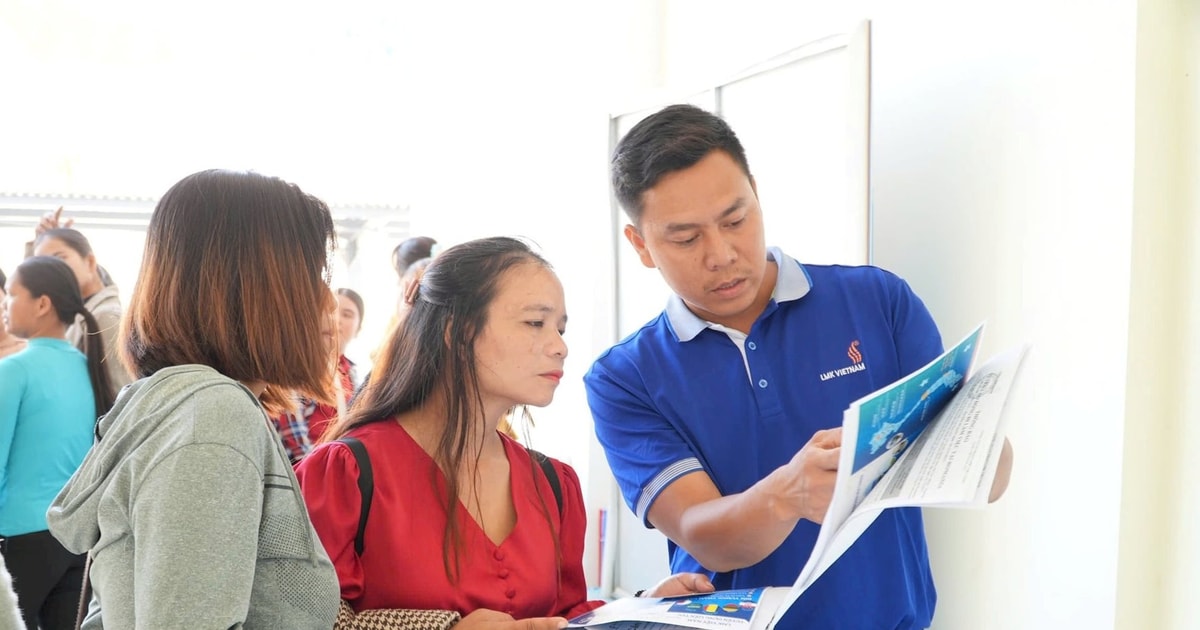
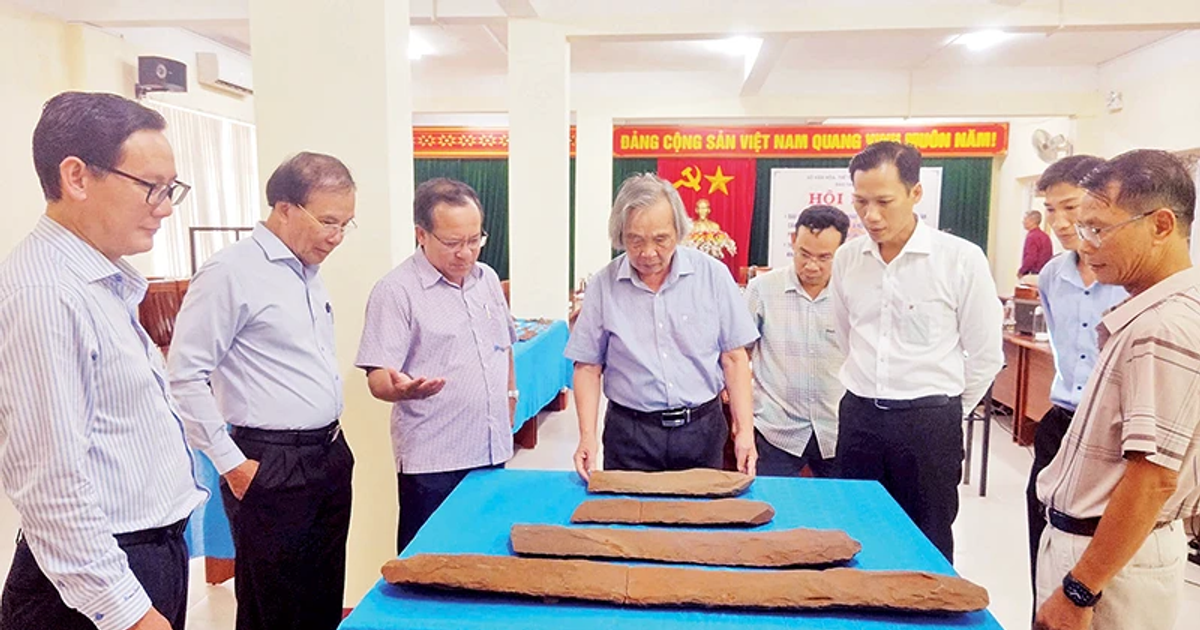

















![[Photo] An Phu intersection project connecting Ho Chi Minh City-Long Thanh-Dau Giay expressway behind schedule](https://vstatic.vietnam.vn/vietnam/resource/IMAGE/2025/8/21/1ad80e9dd8944150bb72e6c49ecc7e08)


































![[Photo] Politburo works with the Standing Committee of Hanoi Party Committee and Ho Chi Minh City Party Committee](https://vstatic.vietnam.vn/vietnam/resource/IMAGE/2025/8/21/4f3460337a6045e7847d50d38704355d)
































Comment (0)